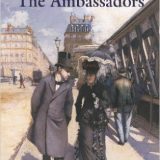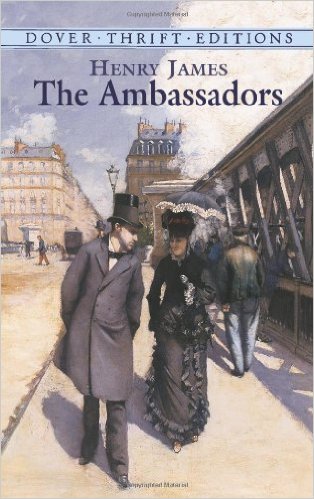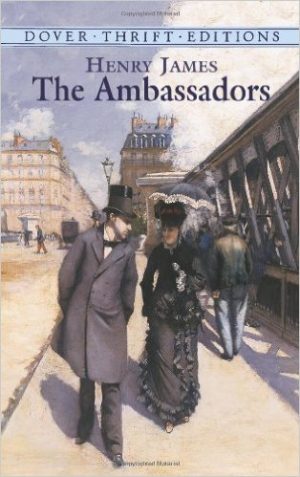The Ambassadors – Henry James – 1903
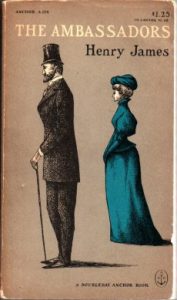
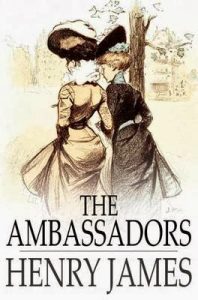
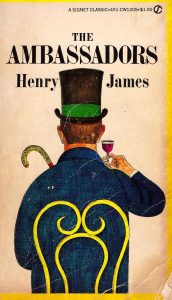
Reviewed by: Guillermo Maynez Date: 11 September
Young American from a small town and rich background goes to Paris to discover life is more exciting there, especially if you have money and are handsome. Mother’s fiancée is sent out to look for the boy and bring him back home to Protestant Ethics and the Spirit of Capitalism, Anglo-Saxon style. But, old man finds out life is much more exciting there than in New England, kinda falls in love with the boy and refuses to do his job. Awful and interesting things happen all the time, but you can only guess as you struggle through the convoluted, subtle, wicked and thoroughly elegant prose of James. A master of style and of the English language, James has the skill to transform the affairs of spoiled rich people into something you want to find out. It helps if you’re in a train and have nothing left to read and are travelling through New England, as happened to me.
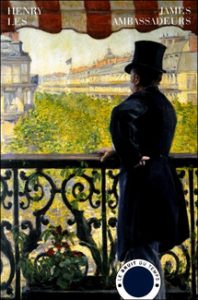
Reviewed by: Chris Green Date: 28 August 2001
An Ode to Commas, A Monument to Vagueness.
Henry James’ “The Ambassadors” uses, without a doubt, and in saying so I take into consideration, truly, all works of fiction which have heretofore passed below my eyes, more commas than ever, in my entire life, cumulatively, I have seen. His employment of commas, while uses held to be commonly accepted are, no doubt, exempted, contrives an arduous and, I might add, cumbersome, reading experience.
Still I liked it. James’ prose is – I’m not sure how to put this – schizophrenic. While the entire text is rife with the kind of comma usage and tangential asides that make it a slow and fitful read, there is a significant difference in how the book flows between the episodes of dialogue and James’ philosophising. The dialogue between the characters is rich, poignant, and beautiful to read. James seem adept at making his characters come to life like very few authors can. However, the prose in-between the dialogue is a bit thick. Not only does the comma problem arise, but the prose is so incredibly vague that there is scarcely any indication of a direction, point, or purpose to much of it. James seems, at times, to be showing off his prodigious vocabulary at the expense of really saying anything.
The Good: I liked the book because the story is well plotted, well paced, nuanced, and its characters are unusually subtle and real.
The Bad: Those commas and the indescribable vagueness of the text.
The Other: A funny aspect of this work is the way in which the Americans speak. Apparently to distinguish them from the English and French characters, James occasionally has them say “ain’t.” This doesn’t quite work, and probably should have been avoided altogether. Let me illustrate: “Yes my dear, really wonderful isn’t it? Perhaps on the morrow we could stroll along the Seine together, hand in hand whilst the sun drifts agaze above our heads, it will be a grand hour as long as it ain’t too warm.” See what I mean?, it doesn’t quite work with the Oxfordian speech.
I give this book three hearts; not because it’s a masterpiece, but because it is impressive. However, impressive doesn’t necessarily mean good, and while I enjoyed the characterisation and plot, the majority of the prose left me cold. I recommend skipping this one.


